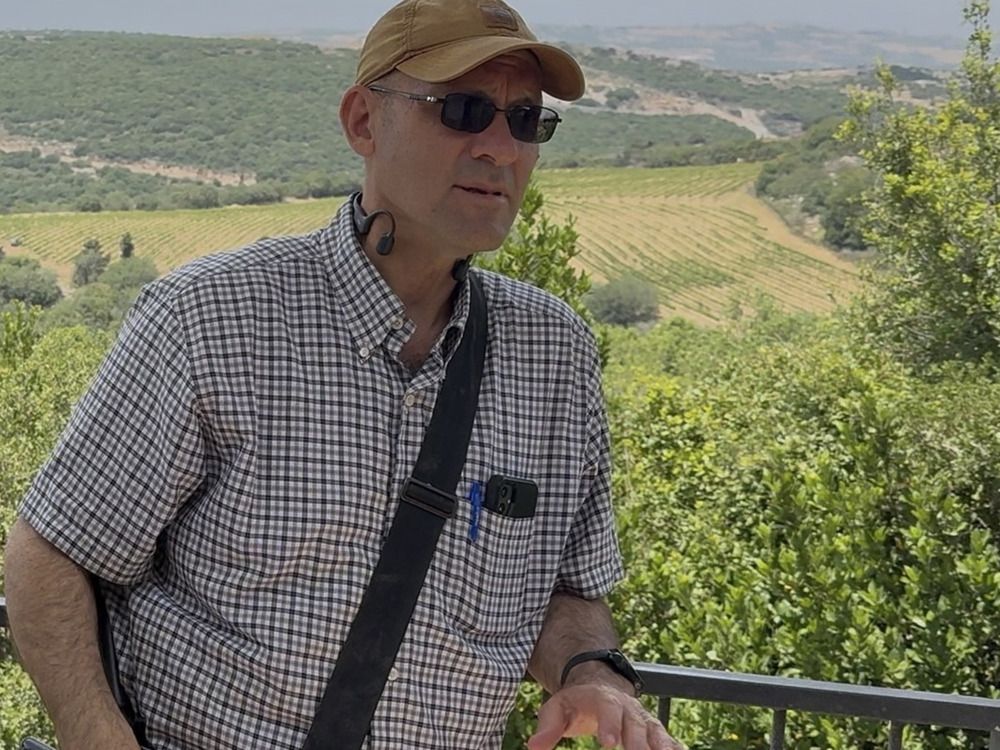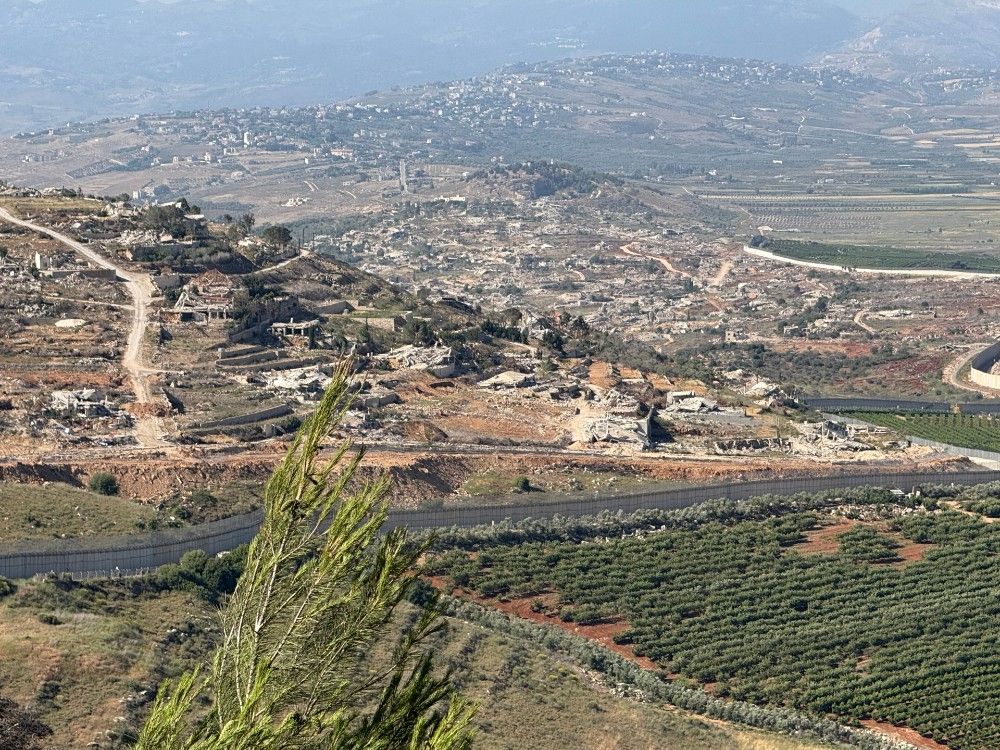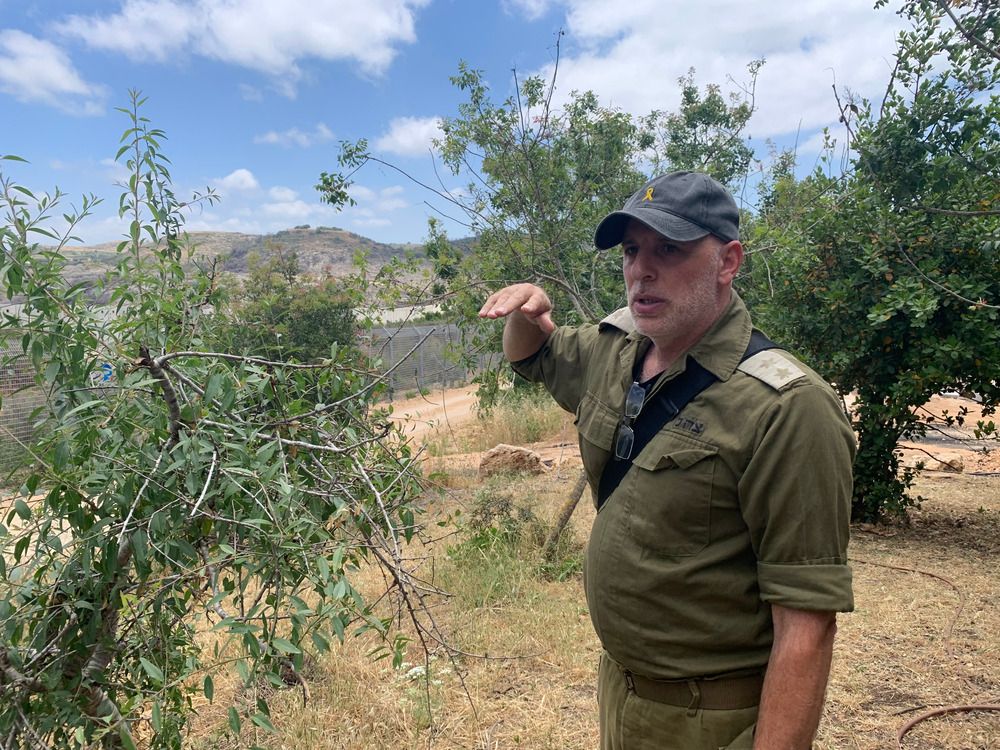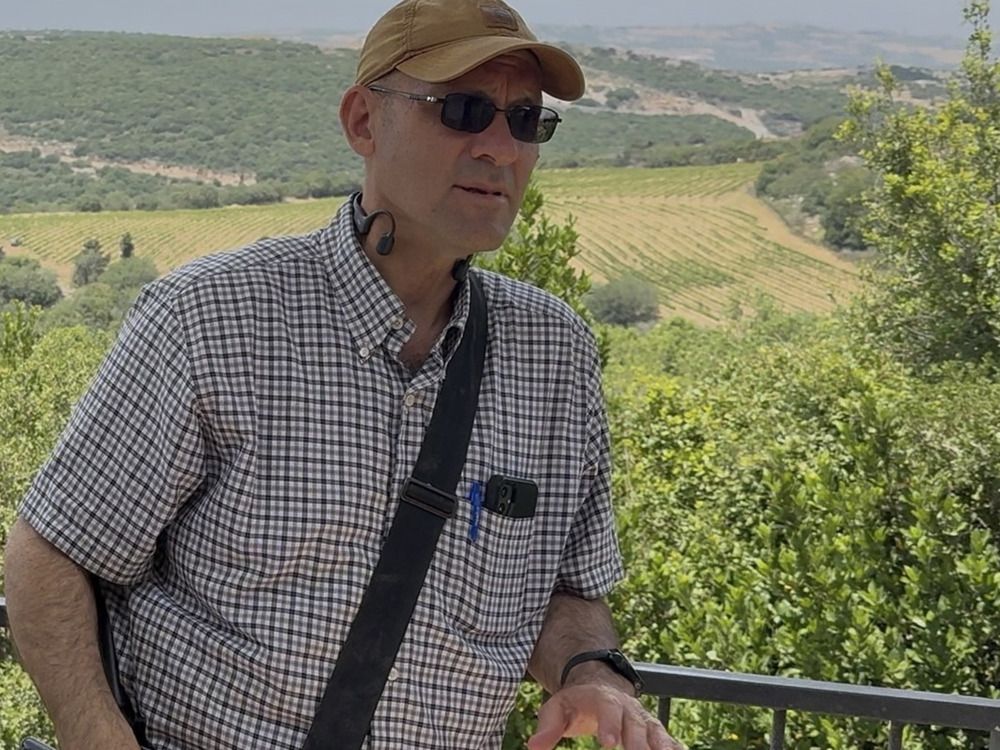
Lebanon’s Kfar Kila was badly thumped during an Israeli offensive against Hezbollah, and further reduced to rubble by construction contractors engaged by Israel to largely wipe it from the Earth; it is now essentially a few roads with intermittent piles of rocks and vague outlines of what used to be houses.
Herzberg said the Israel Defense Forces (IDF) found what were essentially “fake homes” there, filled with missiles and soldiers’ rations and uniforms. It was the same story in settlements all along the Lebanese border, including in Christian towns that were essentially occupied by Hezbollah.
The destruction done to southern Lebanon by the IDF’s assault on Hezbollah last fall is devastatingly clear, but Herzberg wants a group of visiting Canadian journalists to understand the Israeli message: the war was not with Lebanon but with the terror group that had effectively colonized Kfar Kila and much of southern Lebanon.
“We have no issue with the Lebanese people. We have issues with Hezbollah. They are our enemy,” he said.
The Montreal-born Herzberg has the unique seriousness of purpose of an Israeli soldier proud of the Jewish state army’s capacity for killing its enemies. He looks like an accountant who runs marathons but speaks with the swagger of a warrior, sometimes against his country’s own leadership. The army was embarrassed by October 7, and is determined not to be caught flat-footed again.
“This is the strongest we’ve ever been,” he said.
Today, he is a tour guide but he is also an IDF reservist, which means he’s spent most of the past 18 months on active duty; he had spent the previous day in a nearby corner of Syria and was to return there the following day.

Israel learned quickly from its inattention early on October 7, taking no chances in the north; two hours after Hamas invaded the south, the army sent troops to the north to counter any threat from the better-armed Hezbollah. Israel has since spent the last 19 months ensuring it is defanged.
Herzberg said Hamas are bunch of pikers who got lucky — he calls them “a junior varsity team” while Hezbollah is “a professional sports team.” But by hesitating when Hamas acted, Hezbollah lost the opportunity to seize an advantage. They sent their first rockets into northern Israel on Oct. 8, 2023, sparking a back-and-forth and a full-scale Israeli invasion of southern Lebanon.
But Hezbollah is now 80 per cent routed, pushed back via a November ceasefire to the other side of the Litani River, some 27 kilometres from the Israel border, and seemingly unable to mount a threat anymore. Its leadership is decimated, its military capacity largely neutered.
“They’re not defeated, but they’re crushed,” said Herzberg.
Israel is still mopping up as it moves freely in southern Lebanon, though many of the 60,000 Israelis who had been evacuated from the north for more than a year have finally returned. Still, this can feel like an active war zone; a plume of smoke went up from the Lebanese side while we were there.
Our tour was sponsored and organized by the Exigent Foundation, founded by Toronto entrepreneur Larry Maher to advocate for the Israeli perspective. In northern Israel, it took us to a Druze Arab town and a Muslim Bedouin village, as well as an Israeli kibbutz.
“This is an Israeli village. Pro-Israel,” said a Bedouin leader in Arab al-Aramshe, where more than a dozen people were injured in a Hezbollah attack on a community centre in April 2024.
The first rocket hit the centre’s glass roof, the second hit a car; a drone arrived 30 minutes later, the timing intended to inflict maximum damage on first responders. The Bedouin spokesman asked to remain anonymous as we stood below what was the glass roof, debris and pockmarks and twisted metal all around.
The Israelis we spoke to said the Lebanese government, such as it is, is thrilled with what Israel has done to take that country’s south back from Hezbollah, even if it’s not saying so publicly. It wasn’t clear if the Israeli government had intelligence to that effect, or if it was merely an assumption, given that the recently elected reformist president of Lebanon has been freeing the government of Hezbollah’s influence. But Herzberg and others talked about a future with a Lebanese government they could do business with, once Hezbollah is fully out of the picture.
“Lebanon is a kidnapped country, it’s like a beaten spouse,” Herzberg said.

Just metres from the Lebanon border, i
n Kibbutz Hanita — established by Zionists a decade before modern Israel was born — we meet Yaki Shalom, head of the community’s security team, who tells us they grow bananas and avocados here. Standing in the community’s outdoor amphitheatre, he tells us there were three Hezbollah attempts to infiltrate Hanita last fall, all pushed back by the IDF. And then there were the constant rocket attacks.
We stand in the rubble of a house hit by a Hezbollah rocket, and then head to a nearby machine gun post on the concrete border fence. Shells from automatic weapons still litter the post.
Hanita was abandoned for months, but Shalom said 60 per cent of the population has come back, led by teenagers who wanted to return to their school and friends. But families with younger children have not come back; the kindergarten is still closed.
I
srael’s war with Hezbollah has taken a toll on Hanita and much of northern Israel. Still, these Jewish, Druze and Bedouin places stand, damaged but determined, as towns like Kila on the other side of the border do not.
“We are here. (Hezbollah) are not here. So I guess they made a mistake,” said Shalom.
Our website is the place for the latest breaking news, exclusive scoops, longreads and provocative commentary. Please bookmark nationalpost.com and sign up for our newsletters here.
